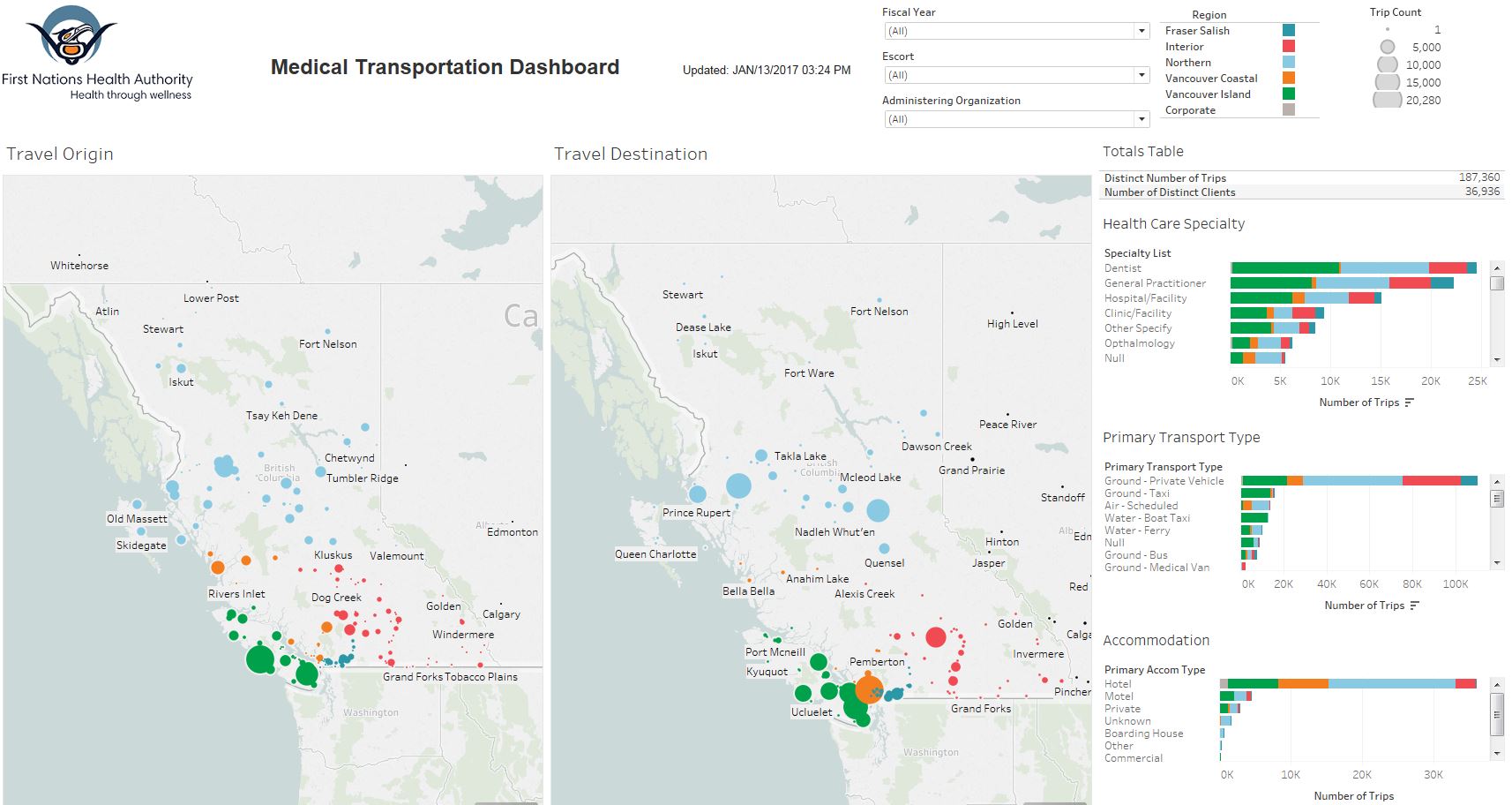
Ricardo Cao, Reporting Analyst, Health Benefits Data Analytics & Reporting Team
They say 'knowledge is power' and when it comes to our health, we certainly agree.
That's why we're excited to introduce you to FNHA Health Benefits' new Data Analytics & Reporting team!
It might sound pretty technical (and it is), so today we're unpacking five ways that our newest FNHA Health Benefits team has an important role to play in the health and wellness of BC First Nations:
Helping FNHA respond to community needs
Knowing in detail how BC First Nations are accessing FNHA benefits and services allows us to be more responsive to community needs. By understanding the gaps, we are better positioned to focus efforts where they are needed most.
Our new Data Analytics & Reporting team has been working to build a FNHA Health Benefits reporting dashboards – interactive, web-based interfaces that provides visibility into information that was previously stuck in clunky spreadsheets and databases.
"The power of data visualization was clear when we created an interactive map using data from hundreds of Medical Transportation logs for communities along Highway 16 in collaboration with Northern Health and Ministry of Transportation" says Andrew Pacey, Director of FNHA Health Benefits Data Analytics & Reporting Team.
"We were able to visualize the large number of clients travelling in the north-west for health services. Now we are working with our communities and partners in the area to identify opportunities for safe and more cost-effective transportation. As they say, a picture is worth a thousand words! There is no way we could convey this information so intuitively using a spreadsheet."

Example of an analytics dashboard
Our health, our data
We are guided by our 7 Directives - the second of which sets out our goal of "increasing First Nations decision making and control" over health. Ownership and control of our communities' health data and reporting is a vital piece. So, too, is ensuring that data being collected represents our values and the diversity of - BC First Nations .
Health Benefits' new Data Analytics & Reporting team is building the infrastructure to bring BC First Nations health data in house. Their tech savvy also means that accessing and using data will be faster and more relevant to the needs of BC First Nations-safeguarding the highest standards of data security and privacy are front and center of this work.
For us here at FNHA Health Benefits, we'll also use this added capacity to take a look at our own performance. Are we meeting our commitment to BC First Nations? How can we do better?
Sharing knowledge through Regional Health Profiles
Providing detailed Regional Health Profiles is a way Health Benefits can give back to health teams in BC First Nations communities. Relevant regional and community data, combined with local knowledge and insight, will help communities deliver their priority programs and services.
"Regional reports provide a window into how our people are using health services – what we are currently accessing and what services are needed but that people simply are not getting," says Megan Hunt, FNHA Regional Director, Northern Region. "Clear and up-to-date information in these reports is so powerful for informed decision making and a chance to be more innovative as we work to build stronger, healthier communities!"
"Creating health program and service information profiles that can be accessed by our communities is a powerful way to support grass roots direction setting – our communities will have information needed to support focusing efforts where they will be most impactful to improve the health services available to our people" notes Lisa Montgomery-Reid, FNHA Regional Director Interior Region.
We can't do it without your help! Data for our Regional Health Profiles comes from reports submitted by community health representatives. Quality reports are critical part of making this rich region-specific knowledge available.
Maximizing community relationships
Moving forward, the Data Analytics & Reporting team's goal is to support streamlined approaches to analyzing large amount of data and providing valuable feedback to our communities. As Andrew explains, "It's about getting computers to do the heavy lifting".
Combined wisdom
We know that statistics on their own don't tell the whole story – that's why we work closely with our, community leaders, governance, and programs staff to understand what the numbers are telling us in a real-world context.
Together, this wisdom will give us the power to strengthen how we deliver Health Benefits for ourselves, and the generations yet to come.

